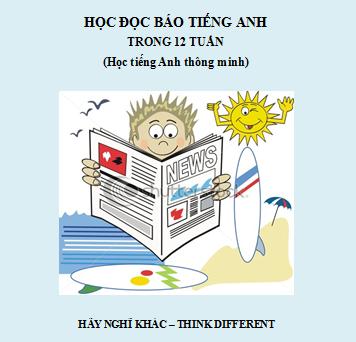In the vast ocean of language learning, certain phrases might seem deceptively simple. Take, for instance, the Vietnamese phrase "bạn nặng bao nhiêu tiếng anh." At first glance, it appears to be a straightforward question about weight, specifically "how much do you weigh in English." However, delving deeper into this seemingly innocuous query reveals a fascinating landscape of linguistic nuance, cultural sensitivity, and the true essence of mastering a foreign language beyond mere vocabulary and grammar. This article explores how this simple phrase opens a window into the complexities of effective English communication, drawing parallels from various aspects of learning and life.
The Literal and the Nuanced: Deconstructing "How Much Do You Weigh?"
Understanding a phrase begins with its literal translation, but true comprehension lies in grasping its appropriate usage.A Direct Translation: What It Means
Let's break down "bạn nặng bao nhiêu tiếng anh": * "Bạn" means "you." * "Nặng" means "heavy" or "to weigh." * "Bao nhiêu" translates to "how much" or "how many." * "Tiếng anh" means "English." So, grammatically, the phrase directly translates to "How much do you weigh in English?" If you were to ask this question word-for-word, it would be understood. However, the correctness of grammar doesn't always equate to the appropriateness of communication.Cultural Sensitivity: When (Not) to Ask
Here's where the nuance truly comes into play. While "How much do you weigh?" is a grammatically sound question in English, asking it directly to someone, especially in casual conversation or to an acquaintance, is often considered impolite or too personal in many English-speaking cultures. It's a question typically reserved for medical professionals, close family, or very intimate relationships, and even then, often with a preface. This situation perfectly illustrates a common challenge for language learners: possessing the linguistic tools (vocabulary and grammar) but lacking the cultural context. It's akin to a non-native speaker who might "know Vietnamese even better than you" (`biết tiếng Việt có khi còn sõi hơn anh nữa đấy`), but who "certainly isn't Vietnamese" (`nhưng chắc chắn chúng không phải là người Việt`). They might have superior technical command of the language, but without the inherent cultural understanding, their communication can fall flat or even cause offense. Mastering English isn't just about knowing the words; it's about knowing when and how to use them, understanding the unspoken rules of interaction, and recognizing the social implications of your chosen phrases.Beyond Weight: The Broader Scope of "Bao Nhiêu" (How Much/Many) in English
The "bao nhiêu" component of our featured phrase is incredibly versatile and fundamental to everyday communication in English. It's not just about asking for a person's weight but about quantifying the world around us.Quantifying the World Around Us
"Bao nhiêu" is the go-to phrase for inquiring about quantity, whether countable or uncountable. This concept is crucial for gathering information, making decisions, and understanding data. Consider these common applications: * **Cost:** "How much does it cost?" (When buying something) * **People:** "How many people are coming?" (When planning an event) * **Time:** "How much time do we have?" (When facing a deadline) * **Information:** "How many ways are there to solve this problem?" (`Bao nhiêu cách chứng minh cho bài toán BĐT 3 biến Đại Số...`) This shows that "how many" isn't just for physical objects but for abstract concepts too. Just as we constantly update ourselves with the latest news (`VnExpress tin tức mới nhất - Thông tin nhanh & chính xác được cập nhật hàng giờ.`), we often need to quantify details to make sense of the world. From scientific reports noting "the highest concentration of total MCs was 8716.3 ng/L" to understanding how many steps are needed to solve a problem, the ability to ask and understand "how much/many" is indispensable.The Importance of Context and Specificity
The way we ask "how much" or "how many" changes dramatically with context. For instance, you wouldn't ask "How much apples?" but "How many apples?" Understanding the difference between countable and uncountable nouns is a basic but vital step. Moreover, the *relevance* of a question is key. Just as "your math skills will be meaningless" (`kỹ năng giải toán của bạn sẽ chẳng có ý.`) if not applied correctly, asking a grammatically perfect question can be meaningless or even detrimental if it lacks appropriate context or sensitivity. The art of communication lies in knowing what to ask, when to ask it, and how to phrase it for maximum clarity and minimal misunderstanding.Mastering English: The Journey of Fluency and Nuance
The journey to English fluency is a multifaceted one, extending far beyond simply translating words. It involves embracing the subtleties, practicing relentlessly, and immersing oneself in the language's cultural fabric.From Pronunciation to Pragmatics
Learning English typically begins with foundational elements: building vocabulary (`b2 tiếng anh cần bao nhiêu từ vựng`) and grasping grammar rules. However, true mastery involves much more. It demands attention to pronunciation, ensuring your words are understood and you can "say [phrases] like Americans" (`Practice pronunciation of the word tiếng anh... like Americans.`). Beyond phonetics, it requires understanding pragmatics – the study of how context contributes to meaning. This includes recognizing tone, body language, and the unspoken social rules that govern conversations. For example, the difference between a direct statement and a gentle suggestion, or knowing when a question is intrusive versus genuinely curious, are all part of pragmatic competence. It's about understanding the "whispers" of communication, even if they feel "far across the ocean" (`Gần như tiếng thầm thì, nhưng vẫn còn xa xôi cách trở đại dương.`).Continuous Learning and Real-World Application
The path to fluency is continuous. It involves actively engaging with the language, whether by "updating news while improving English listening-speaking skills" (`Vừa cập nhật tin tức, vừa nâng trình nghe - nói tiếng anh.`) or by seeking out opportunities for real-world interaction. The internet has become an invaluable tool, bridging geographical distances and allowing for communication that, while perhaps "not a complete reunion," (`Nhưng chưa trọn vẹn của một hạnh ngộ bằng.`) still offers immense opportunities for practice and connection. Ultimately, mastering English, or any language, is about empowering oneself to communicate effectively, to express thoughts, feelings, and information with clarity and appropriateness. It's a journey of overcoming challenges and embracing growth, much like the inspiring idea of "motivating thousands to rise up" (`Thôi thúc muôn người đứng dậy lên...`). It's about finding your voice and connecting with others, whether through sharing information, exchanging ideas, or simply enjoying the subtle emotions conveyed in a song (`Tình khúc Diễm xưa chợt bay vào trong trí...`).Summary: The Deeper Meaning of a Simple Question
The phrase "bạn nặng bao nhiêu tiếng anh" serves as an excellent case study for the complexities inherent in language learning. While its literal translation is straightforward, its appropriate usage in English-speaking contexts highlights the critical role of cultural sensitivity and pragmatic understanding. Beyond the specific question of weight, it underscores the broader importance of "how much" and "how many" in quantifying our world and the continuous journey of mastering English. True proficiency goes beyond mere words, encompassing cultural awareness, contextual appropriateness, and the ability to communicate effectively and meaningfully. Embracing these nuances is key to unlocking the full potential of language and fostering genuine connection.Related Resources:



Detail Author:
- Name : Marilyne McClure
- Username : larue.lubowitz
- Email : ffranecki@emmerich.net
- Birthdate : 1986-02-15
- Address : 54525 Anderson Extension Apt. 132 West Silashaven, MA 74362-9084
- Phone : 907-279-6628
- Company : Maggio-Roob
- Job : Compliance Officers
- Bio : Quis sunt dolor nam numquam rerum aliquid. Voluptates eos dolores iure non debitis quo aut. Explicabo unde fugiat eligendi eveniet.
Socials
facebook:
- url : https://facebook.com/swisozk
- username : swisozk
- bio : Laboriosam ut cumque provident voluptas et et deserunt veritatis.
- followers : 2161
- following : 2527
twitter:
- url : https://twitter.com/swisozk
- username : swisozk
- bio : Et quod impedit natus vel et ullam. Quia sed repudiandae dolorum eum cumque.
- followers : 3150
- following : 1567
instagram:
- url : https://instagram.com/wisozk1970
- username : wisozk1970
- bio : Optio iste distinctio dolor quae. Hic eius quo ex necessitatibus. Quas rerum quibusdam nisi iste.
- followers : 1972
- following : 2454
tiktok:
- url : https://tiktok.com/@wisozks
- username : wisozks
- bio : Eum doloremque delectus illo ipsa porro ullam.
- followers : 2051
- following : 860